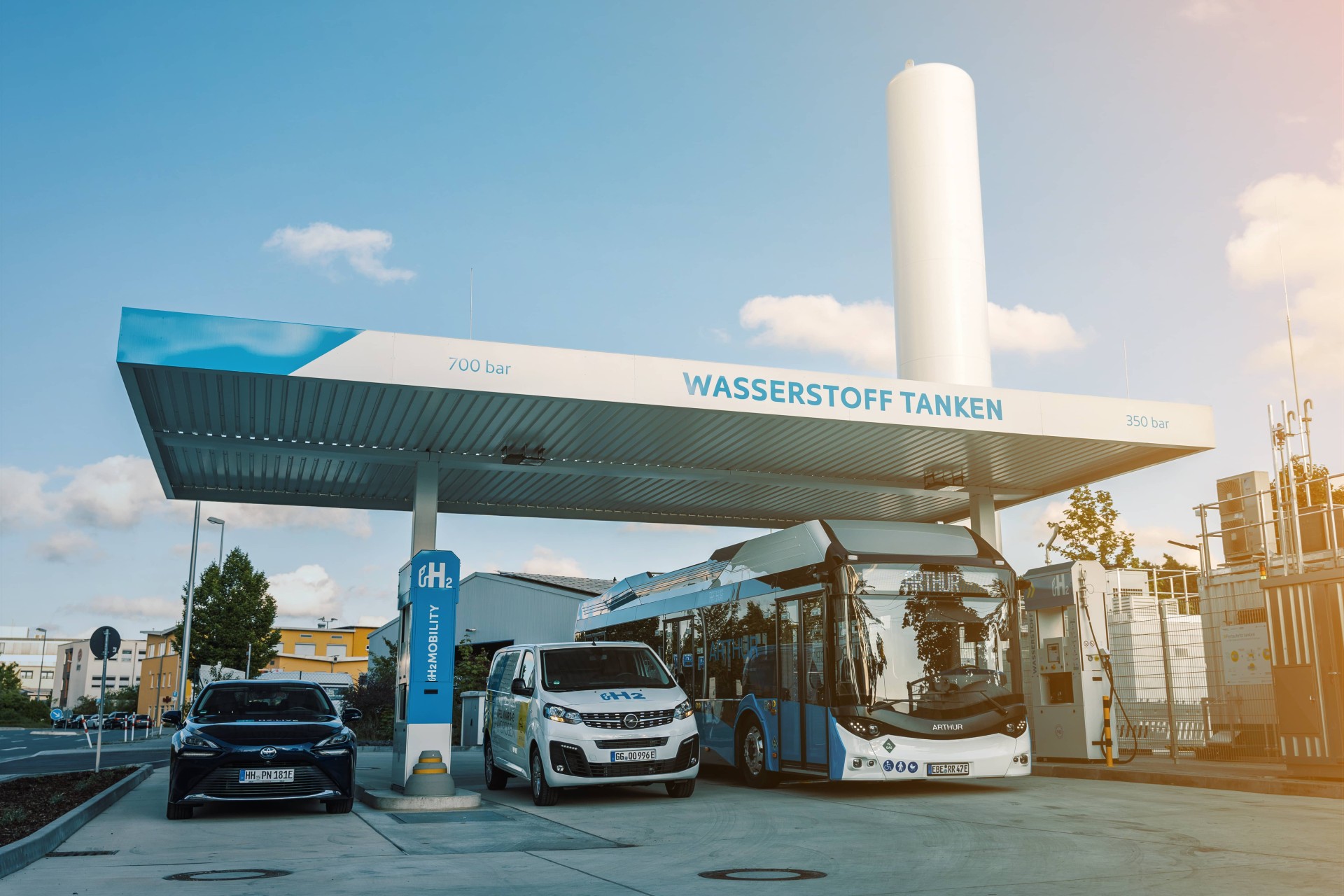Counting on hydrogen

It is seen as a beacon of hope for the energy transition: Hydrogen. As a substitute for the fossil fuels natural gas, oil and coal, it is set to play a key role in transportation and energy supply in Germany and elsewhere in the future. As part of its national hydrogen strategy, the German government is therefore massively promoting this "energy carrier of the future".
Hydrogen as an additional pillar of the energy transition sounds promising. After all, no other chemical element in the universe occurs as frequently as hydrogen, abbreviated as H2. It is considered a flexible and easy-to-transport energy carrier. The German government expects hydrogen technology to improve security of supply and sees a billion-dollar market with many new jobs in the making. As a fuel source for cars, hydrogen is considered to be particularly environmentally friendly, as the only waste material produced during driving is water. It is also expected to make a significant contribution to climate protection.
However, it will be many years before hydrogen technology is widely used in transportation and industry. The technology does exist and has been tested in practice. But hydrogen is currently still scarce and expensive. This is because the production of hydrogen is particularly energy-intensive, which drives up the price. Energy-intensive industrial companies, which would like to start using hydrogen sooner rather than later, are also unable to do so because the infrastructure is lacking in many places and can hardly be built in the short term.
Watch our interview with Nikolas Iwan, former CEO of H2 Mobility
Is the current energy crisis the showstopper for the hydrogen development? No, says Nikolas Iwan. In fact he believes it’s exactly the opposite and will be a boost for green hydrogen. Nikolas is the former CEO of H2 MOBILITY, world market leader in operating hydrogen refuelling stations, and was announced to remain active for the company as Executive Chairman of the Board. Still in his role as CEO, Nikolas Iwan sat down with Dr. Mirko-Alexander Kahre, Director Corporate Communications, Marketing & Sustainability at DKV Mobility, to discuss hydrogen's potential in the decarbonization of transport and the supposed race against e-mobility.
Network of service stations grows
Nevertheless, there is no lack of encouraging progress. This also applies to the transport sector, where hydrogen is likely to be used primarily in heavy vehicles with long ranges, where operation with electric batteries makes less sense. However, hydrogen-powered cars are already on the road. Thanks to new investors, Berlin-based hydrogen service station pioneer H2 Mobility is currently pushing ahead with the expansion of its network. The company already operates around 100 of its own and third-party owned hydrogen service stations. "Our focus is now on building significantly larger hydrogen refuelling stations and thus also significantly reducing the price for the end consumer," explains Nikolas Iwan. Iwan is convinced that price reductions up to 80 to 90 percent are entirely possible through economies of scale in the next seven to eight years. Especially long-haul trucks and busses will then be refuelling with hydrogen.

Eco-friendliness is determined by the production process
In addition to the mere availability and price of hydrogen, the climate footprint of its production is another important issue. After all, hydrogen is only climate-friendly if it is also produced with "green" electricity from wind, water or sun. The electricity required in this process is very high. The process used to produce hydrogen is called electrolysis. In this process, water is broken down into hydrogen and oxygen with the help of electricity. If the electricity for this comes exclusively from renewable energy sources, such as wind and water power or solar energy, it is referred to as "green" hydrogen. It is considered "gray" if fossil fuels are used for its production. "Blue" hydrogen is also produced using fossil fuel. But because the CO2 produced in the process is stored, "blue" hydrogen is also considered climate-neutral.
The crucial task for the future is therefore to produce enough climate-neutral hydrogen at an acceptable price. Competition for renewable energies is likely to increase in the future, as they are also needed in other sectors, for example to supply electricity to industry and households. Existing gas-fired power plants, and possibly new ones to be built, are also to be successively converted to hydrogen.
The demand is therefore enormous. The German government has already conceded that there will not be enough electricity from renewable sources available in its own country to produce "green" hydrogen. It is therefore relying on cooperation with African countries and Australia, where the framework conditions for the production of climate-neutral hydrogen are much more favorable. The government wants Germany to have an electrolysis capacity of "at least ten gigawatts" by 2030.
